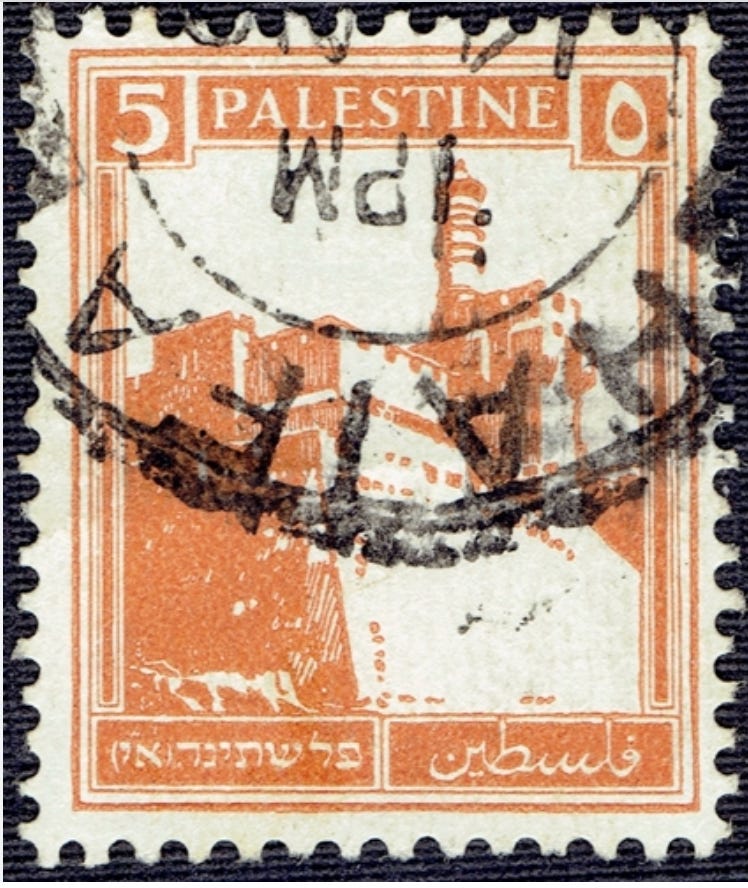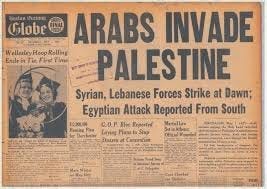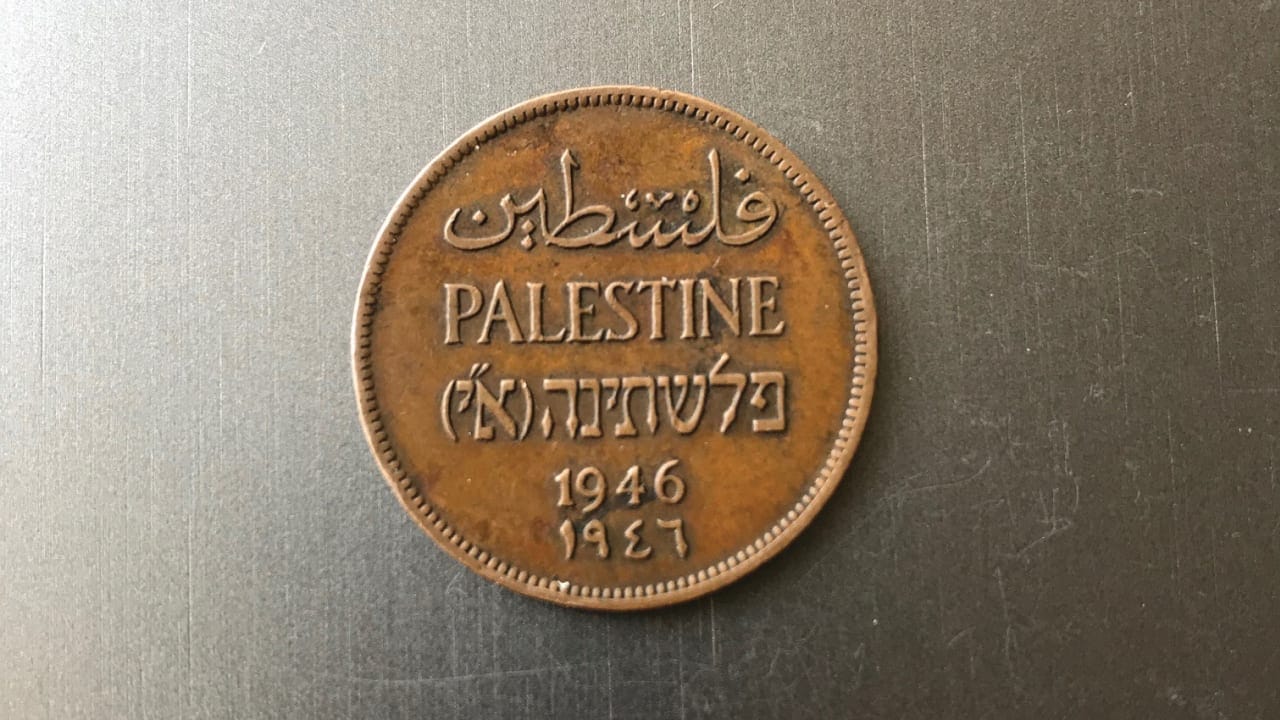CALL IT PALESTINE
CAN WE GET OVER THE INANE DEBATE AROUND VOCABULARY?
A reader recently called me out for using the term “Palestine.” This is something we hear a lot: when someone uses the term “Palestine,” someone will pop up to say, “There’s no such place.” They will respond similarly to the use of the term “Palestinian,” arguing there is no such people.
As someone who lives in words, I should be the first to acknowledge their power. But something about this “debate” irritates me no end. I’ve never taken the time to put my finger on just why until now.
First — I get the argument. We live in a world so filled with ignorant people that they think if there is a place called Palestine and a people called Palestinians, then the Palestinians must be the indigenous people in that place. These are jackasses who know so little of history that they post on social media Zionist posters, stamps, coins and other ephemera with the word “Palestine” on them as “proof” that Palestine existed in the early 20th century. It is a huge self-own (and evidence of the ignorance that is the lifeblood of the overseas “pro-Palestinian” movement).
Quick recap for the turnips: Before 1948 (I’m sure I don’t need to tell you, wise reader) everyone who lived between the Jordan and the Mediterranean were called “Palestinians.” Palestinian Jews, Palestinian Arabs, Palestinian Christians, whatever. In 1948, Palestinian Jews became Israelis, abandoning the term “Palestinian” to Arabs.
Only in the 1960s did the term “Palestinian” become exclusively associated with the Arab people who (ostensibly) seek national self-determination. But the Jews are the only people in the region who can claim indigeneity, being the only ones speaking the same language, practicing the same religion and tilling the same soil as they did 2,000 years ago — centuries before Arabs migrated from Arabia and before Islam was created.
Regardless of that history, I still think the argument is a waste of time. Put simply, I’ll call people what they want to be called. If someone tells me their name is Crap Bag or Princess Consuela Bananahammock, I’ll call them by their name.
Silly example, I know. But this whole “Palestine is not a place” thing kind of echoes the “Zionist entity” nonsense. Many Arabs refuse to call the place “Israel,” as if by denying the name of the country they are having any tangible impact on its existence. Are we seriously lowering ourselves to that absurd level?
Beyond this, the whole line of argument speaks to me of an emotional fragility I wish Zionists would abandon. The Zionist enterprise was intended to invert the European paradigm of an imperiled, weak people and replace it with “muscular Jews.” And some Zionists are making namby-pamby nitpicking arguments and being offended by relatively meaningless words.
Israelis have built one of civilization’s greatest societies and, in the past year alone, have decapitated Hezbollah, massively weakened Hamas, sent Iran home with its tail between its legs, neutralized almost all its top enemies and its citizens have generally kept calm and carried on.
Meanwhile, overseas Zionists hear the word “Palestine” and react like Lucy Ricardo seeing a mouse, leaping onto a chair and screaming, “Riiiicckkky!”
We’re stronger than that.
Plus, we’ve got bigger fish to fry.
Interestingly, this question came up a few months ago when the brilliant Israeli thinker, author and former member of the Knesset Einat Wilf spoke in Vancouver. She was called out for using the term “Palestinians” and she gave the most cogent explanation I’ve heard.
The irony, she noted, is that “Palestine” and “Palestinian” are the very definition of an externally imposed, colonialist designation. The word “Palestine” was imposed on the region by the Roman imperial powers — so it is some sweet dessert that it is the “anti-imperialist” activists worldwide who have made “Palestine” their top priority. (The names “Palestina” or “Syria Palaestina” were intended to replace the Jew-associated terms Judea (or Judaea), Eretz Yisrael (the land of Israel) and Samaria and Galilee. “Palestine” was intended to de-Jew-ify the area in language like the Romans nearly succeeded in doing in de-Jew-ifying the place of its indigenous people.
When the Jews finally got their independence, Wilf explained, they cast off the word “Palestinian,” recognizing it as a colonialist invention, and reinvented their land and themselves as “Israel” and “Israelis.”
For the people who call themselves Palestinians today, Wilf said, “the name actually fits.”
“The name represents a hijacking, which is all they’ve ever done,” Wilf said. “They constantly hijacked the name Palestine, airplanes, international institutions — I mean, that’s it. So, in many ways, the name actually fits.”
If or when Palestinians gain a sovereign state, she thinks they will choose a different name, the way the Jews did in naming their country Israel, recognizing the imperialist roots of the word Palestine. But anyways.
The argument on the other side is that calling the place “Palestine” legitimizes the concept of Palestine as a state. Fair enough, I guess. The spate of spite recognitions of a fake “State of Palestine” this year is really irrelevant to my argument here. The governments, including mine, who “recognized” Palestine would have done so whether it was called Palestine, Hamasistan, Arafatland or Falafalia.
But merely calling a place by the name most people use does not imply autonomy. We call a huge chunk of Europe “The Alps” because that is how we recognize that landmass, but that doesn’t imply national sovereignty. We call Quebec Quebec without implying it is an independent country. This is different, I get that.
But until someone can give me a better reason to stop calling Palestine Palestine and Palestinians Palestinians, I will keep using the terms. Because to stop doing so implies that Zionists are so weak, that our cause is so fragile, that a simple word can deflate our entire movement and undermine our cause.
That is a level of fragility and insecurity that the Zionist project was meant to eliminate.
Some people have generously asked me to make it possible to make one-time contributions to support my work. I have now set up a PayPal link for donations. If you like snappy smackdowns of antisemitism and anti-Zionism and want me to keep it up, any support is deeply appreciated. Click here.





I reluctantly agree. The erasure of Jewish history irritates me, as do the continual references to a place that doesn't exist and never existed (an exclusively Muslim country occupying the space of present day Israel) as if it were on any map. But I think you are right. Telling people this doesn't make any difference since they refuse to listen to facts or to face realities. I am also tired of the argument about indigenous people of the Middle East. I cannot think of any country in the world that is inhabited exclusively by the indigenous people. I am willing to concede that there are Muslims living in Gaza, The West Bank and in Israel whose DNA proves they are descended from the indigenous people. But so what? Plenty of Jews -- like me -- also have DNA proof that we are descended from the indigenous Jews of Judea/Palestine. No one is suggesting that, for instance, everyone in England who isn't descended from the indigenous people should be forced out of the country or killed. Now when Pro-Pals begin haranguing me about their skewed view of history I just say, "Its a war between two indigenous tribes and I stand with the tribe that has proven that they can live in peace with people of different ancestry." Am Israel Chai!
I understand your point. I prefer to use the term “Arabs of Palestine” wherever possible, since that more accurately describes this group of people - a minority originating from the original Arab conquest , joined in the 19th/20th centuries by Arabs and various other ethnic groups from the surrounding countries and throughout the Ottoman Empire, who eventually identified as a majority Muslim Arab group living in historic Palestine, but not as a distinct people unless in opposition to the indigenous Jews.